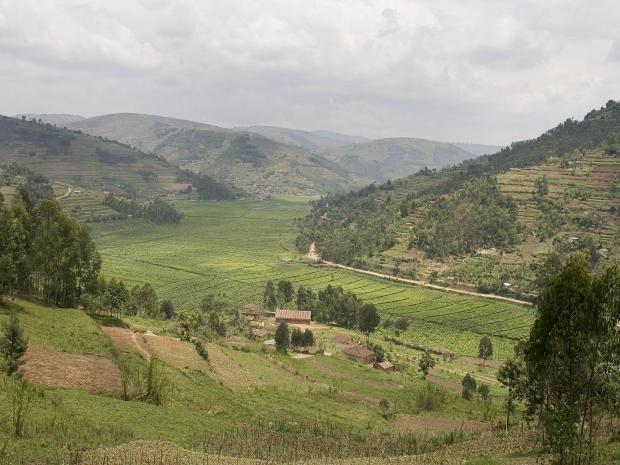Work in Africa
- Harmonisation of pesticide legislation
In the African region,priorities identified during the inception phase of the project (2013-14) included the harmonisation of pesticide legislations and regulations, training on pesticide registration and risk assessment; and identification and risk reduction strategies for Highly Hazardous Pesticides (HHPs). In 2015, efforts towards the goal of harmonizing pesticide regulation moved forward through the organization of a Consultation for Regional Harmonization of Pesticide Regulation in the East African Community held in Dar es Salaam, Tanzania in June 2015. The aim was to review existing regulatory processes and related activities on pesticides in the EAC countries and provide recommendations for a practical and sustainable modality to assist the countries to harmonize pesticide registration; and to initiate the preparation of guidelines on harmonization of pesticide legislation and registration requirements. Three working groups of experts on pesticide residues, efficacy trials and data requirement were proposed to develop regional guidelines to guide the EAC towards harmonisation.
- Highly Hazardous Pesticides and Rotterdam Convention
In July of 2015 a regional workshop for the Southern African Pesticide Regulators’ Forum (SAPReF) was held in Harare, Zimbabwe to elaborate a strategic action plan for SAPReF that will guide short and long term activities to build capacity on sound pesticide management. As part of the same events, Designated National Authorities were trained on better enforcement of Rotterdam Convention and risk reduction of Highly Hazardous Pesticides (HHPs). One SADC country, Mozambique, has already taken the important regulatory decisions to ban all HHP products. Finally, sites that are heavily contaminated with pesticides have been investigated in Kenya, Botswana and Eritrea and risk mitigations measures have been proposed to the concerned authorities.
- Biodiversity and Agriculture: minimising agrochemical use
In East Africa, a Technical Guidance Document on “Mainstreaming ecosystem services and biodiversity into agricultural production and management” was produced in May 2016, in collaboration with the Secretariat of the Convention on Biological Diversity (CBD) (available at: www.fao.org/3/a-i5603e.pdf). Its aim is to assist countries in finding synergies between two important realms of international agreements: sound chemicals management and biodiversity conservation and sustainable use. The document is intended to support countries in the East African Community (EAC) as they revise any of their strategies or policies related to these two realms, but in particular is oriented toward country revision, or to assist implementation, of their National Biodiversity Strategies and Action Plans (NBSAPs), to help them attain a number of relevant Aichi Targets. In this framework, a national training workshop on “Ecosystem Services from Sustainable Agriculture for Biodiversity Conservation”, was held in Kenya in May 2016. The workshop brought together key stakeholders from the relevant Government institutions in Kenya - and particularly those that are involved in the revision of the country’s NBSAPs. A key outcome from the event was the participatory development of suggestions to mainstream agricultural biodiversity to minimize the use of agrochemicals, in the Kenya NBSAP that is currently undergoing revision.

